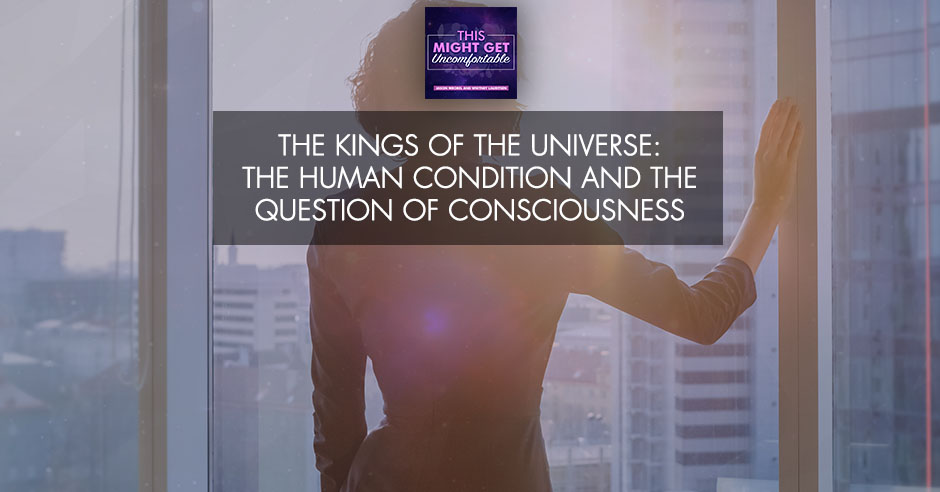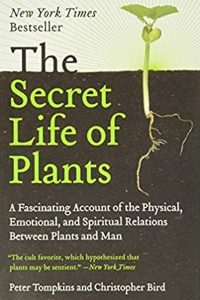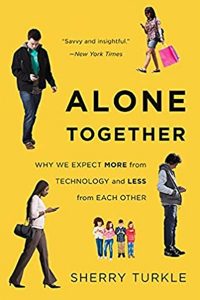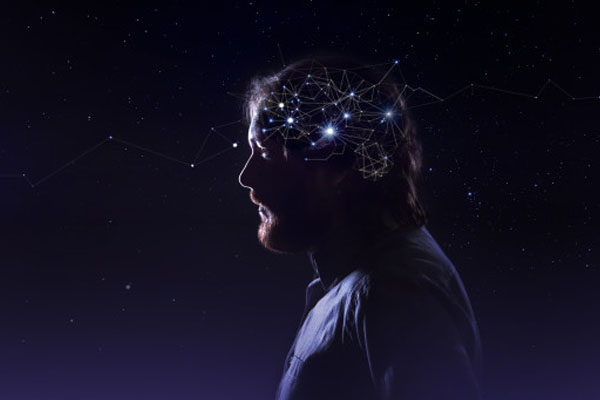
Consciousness. Quantum Physics. Free Will. Control. Dominion. These words are a few of the things that comprise modern human civilization. While humans think we are the crown of creation, there are arguments that the universe itself has its own consciousness. This begs the question: what is our place in the universe? In this episode, hosts Jason Wrobel and Whitney Lauritsen sit down and discuss the question of consciousness and how this impacts our lives. They also get into side discussions about free will, quantum physics, speciesism, and more. Tune in for fresh insights!
—
Watch the episode here
Listen to the podcast here
The Kings of the Universe: The Human Condition And The Question Of Consciousness
What is consciousness? It’s a light question to start this episode but it was made more interesting by an article that came out that I sent to Whitney on PopularMechanics.com. Consciousness is an interesting thing. This article posits something interesting. This is not a new thing but it’s a deeper exploration into the idea of, is the universe a conscious being like a gigantically widely dispersed human brain? Is the universe just one neural net so to speak?
Scientists have questioned for a long time the intersection of consciousness and science. Two mathematicians have turned this theory into a workable, crunchable, maybe scalable mathematical model. This is fascinating as hell because the traditional definition of consciousness is “the normal mental condition of waking state of humans characterized by the experience of perceptions, thoughts, feelings and awareness of the external world often in humans but not necessarily in other animals self-awareness.”
Is the universe a conscious being like a gigantically widely dispersed human brain? Is the universe just one neural net, so to speak? Share on XScientists don’t have a workable model yet as to what consciousness is. We don’t know what it is, where it comes from or what it’s made of. We don’t know why we’re self-aware and able to perceive ourselves or the external world. A loophole in all this is we can’t exhaustively say that other organisms or inanimate objects don’t have consciousness. The article says, “Humans relate to animals and can imagine dogs and cats having some amount of consciousness because we see their facial expressions. We see some emotional relations and how they appear to make decisions. Because we don’t relate to rocks, oceans, trees, sky and stars in the same way, it doesn’t scientifically prove that those objects don’t have consciousness.” This is fascinating as hell.
It reminds me of two things. One is the number of times as a vegan somebody has said, “Don’t plants have feelings, too?” Anytime someone asked me that, I have stopped and thought about it. The common, more educated response from a vegan to that tends to be, “It’s about the nervous system, not the consciousness or the feelings.” The other thing this reminds me of is what we discussed in a previous episode, which was how do you define what’s real? We talked about the book Alone Together and how the author Sherry Turkle posits the fact that AI and robots could be perceived as real and it depends on your definition of what’s real.
The idea of consciousness though gets convoluted with feelings because they’re two separate things. An emotional response to stimuli is not the same as consciousness. All these years, we’ve been like, “You’re murdering carrots. What about the vegetables?” Here’s the thing. There has been researched already done and this was back in the ‘70s. In the book The Secret Life of Plants where they hooked up EKG machines and did different stimuli to plants where they spoke kindly to plants and stroked the plants lovingly. When they took a lighter or a flame to the plant, the EKG machine would go crazy.
There’s been this theory that plants have consciousness or the ability to selectively respond to different stimuli. In those tests, they saw that plants responded differently, energetically or electrically speaking, to a loving gesture versus a gesture that was intended to harm the plant. Does that mean that’s consciousness? Some people said, “Plants are conscious.” This gets tricky though because this comes into the intersection as we talked about in the episode where we’ve discussed AI, robots, consciousness and non-human consciousness.

The Secret Life of Plants
What kinds of protections, ethics, morality and rights does that grant a non-human conscious being? I’m not going to say that we should have sweeping reforms that rocks and boulders have consciousness. There is a growing movement to say that the natural world ought to have some protections, hence, protected forests, national parks and endangered species that have protections around them.
On a basic level as humans, we do acknowledge the right to non-human conscious beings. Be those trees and those animals, to have some basic protections. This is a tricky thing because if we’re talking about the universe and “inanimate objects” having consciousness or they prove this mathematical model and scale it, what if then our car has consciousness? Beyond the plants and the animals in our lives, what if a lamp or a computer has consciousness? This is almost like a weird drug trip if we think about it.
It leads us to greater awareness. You said, “What if our car has consciousness?” Think along the lines of the AI and robot points that Sherry makes in that book Alone Together. Someone like Elon Musk who you brought up in that episode, too, created the car that I drive, the Tesla and there are times when I feel a connection to that car. Most of the time, I feel it on some level. I have a love for it. I felt that towards Apple products. Both Tesla and Apple have tapped into the emotions of a human being but they’re creating things that are so part of our lives that they almost feel like a companion animal.
Think about it, your phone keeps you from feeling lonely in some cases and bored. It’s stimulating you. That is an experience like what it feels like to be with another human being or an animal. The animal part reminds me of the movie, Avatar, when they hooked their braids or tails into the horse-like creatures where they became unified, connected and they joined together. As silly as it sounds, I almost feel something of that level with the Tesla. Maybe that’s unique to me. I feel bonded to my car. It’s almost like a level of appreciation for it where I care for it.
Sometimes, I think, “It’s because it was a lot of money I’m paying for it. I want to take good care of it so it doesn’t get damaged and cause me more money.” I want to appreciate it. I want to have gratitude for the material objects from more of a financial privilege perspective. It’s a privilege to have something that expensive but also, the more you’re expressing this, the more that I think, “Is there this other level where I feel like I’m connected to it?” I name my cars. Sometimes, I pat them almost like I would with a dog. I’m not even fully conscious of it a lot of the time. The more that they develop, the more that they do start to feel so integrated into their life that they’re not as different as having a companion.
The part about naming is interesting because we have this interesting desire as humans to anthropomorphize so many things in our lives, not just to try and relate to them on some level of consciousness. Whether it was babies in an orphanage, animals in a kennel or you’re saying cars that by giving them a name, interesting studies have shown that a deeper level of care and relationship is built when we name babies, cars or animals. There’s something about putting a name on something that creates a deeper bond and a deeper level of connection and emotional relationship.
There’s an author named David Crookes who wrote a magazine called All About Space. He said about the study of the universe being a conscious being, “This claims that consciousness is inherent, even in the tiniest pieces of matter. An idea that suggests the fundamental building blocks of reality all have conscious experience. Crucially, it implies that consciousness could be found in everything throughout the universe.” They’re implying that almost human consciousness could be algorithmic or perhaps non-algorithmic.
It's humbling if you step back and say, 'What if I stop experiencing life from this place of control, dominance, and hierarchy?' Share on XAn algorithm is a series of predictable steps to reach an outcome. In the study of human philosophy, this idea plays a big part in questions about free will versus determinism. Are our human brains simply cranking out math-like processes that are telescoped in advance or it’s something wild quantumly happening that allows us true free will? Meaning that we have the ability to make meaningfully intentional different decisions that affect our lives. This is a big thing because if consciousness is unpredictable quantum phenomena that don’t conform to physics that we understand then we don’t even know what the hell we’re looking at.
If this is scratching our heads and making us feel uncomfortable, it should because we don’t know where consciousness comes from and what it’s made from. Interestingly, these questions are essential because if we could answer and we could understand how the universe and consciousness operate then we would ask whether or not humans do or not have free will. This has massive moral implications because that’s part of the study. What if the universe consciousness is just a giant program that’s running us and we have no control over that program? What do we do about criminals, rapists, murderers and people we punish in society? Think about it. If scientifically, we were able to prove that all consciousness is a program that we can’t alter or control then how do we regard those aspects of society? This would change how we relate to everything.
Perhaps that would be good for us and humbling for our egos. Coming from this perspective of opening my eyes to issues like racism and reflecting on how some people perceive themselves as being elite, above and more important than other human beings. Certainly, we can feel that way about other animals. We talked about in that episode with Lindsey Rubin about pets and “ownership” and how that term feels strange because it’s like we are masters and controlling.
I can’t remember if it was on TikTok but there’s some conversation I saw about, in a way, do our animals experience Stockholm syndrome? They’re forced into living with us and then their whole lives become dependent on us. Are they happy? Do they love us? You’ve said before jokingly, Jason, “I’m just a food source. My animals don’t love me.” There were many times that I denied that and I was like, “That’s ridiculous.” When you think about it on another level, what if our animals don’t experience love for us?
I don’t know if we talked about this on the show but I feel like we might have, how animals will manipulate us into giving them what they want from us. There have been studies based on how dogs look at you in order to get what they need. I see that as a form of communication. My dog does tons of nuanced behavior to let me know when she’s thirsty or hungry, needs to go outside or wants something in particular. We’ve created this language between us.
There are also times where she seems dissatisfied. I don’t know if I’m projecting myself onto her. All of this to be said, it’s humbling if you step back and say, “What if I stop experiencing life from this place of control, dominance and hierarchy?” That’s another thing that I’ve learned through being vegan. Part of that passion and compassion is recognizing that we all have to work together in sync and harmony. That’s why it’s important to pay attention to animals, plants and how we’re affecting things.
Jason, what you’re describing may be an important turning point for us. Human beings seem to be so afraid of AI and robots because we see movies like Terminator with them taking over but is the balance different than we’ve been used to? We’ve been in charge this whole time, what if it’s time for somebody else to be in charge? That sounds frightening. Is it frightening because of all the awful things that we’ve done to one another?
The cruelty that continues to go on between human beings and other animals is sickening some of the things that are going on in 2021. We look back at things that happened during World War II as so awful and we look at movies like The Handmaid’s Tale based on the book. One of the most important things that Margaret Atwood said about that book is that everything that she wrote was based on reality in the original. I’m not sure if it’s true with the adapted series.

Alone Together
It was the way she combines the story. That story is horrific because it hits close to home. We’re seeing a lot of that stuff happen in 2021 and it’s often about another human being think they have the right to treat another creature a certain way. If we recognize that consciousness is different than we think it is, perhaps that’s a way for us to learn that we’re not better than anything else that has consciousness in this world as we know it.
It could be a tremendous turning point in terms of speciesism and how we regard the natural world. It would reframe everything of us realizing we don’t have as much control or free will as we thought if the mathematical model goes in that direction. If it goes in the direction of determining that consciousness does have free will and we do have the ability to alter the outcome of our life based on our choices, it’s like a fork in the road. Maybe it’s somewhere in the center. We have no idea. We don’t know what consciousness is, where it comes from and how it originates in the human brain. We know none of it. We don’t even know what we are.
I want to go there. “We’re Homo sapiens.” That’s some crap we made up. We need to realize something here. Many of the absolutes we regard as reality as human beings are just things we made up. It doesn’t mean that is a universal reality. We could trip out existentially on that all day long. I don’t want to fill that up. The idea here also is that we exert dominance as human beings over the natural world like animals, plant life, environment, seas, fish and everything. We have deemed that we’re somehow greater because we have bigger brains, different forms of consciousness, language, tools, can make barbecue and grilled sausages and wipe our own asses. We’re the crown of creation.
This hubristic thinking that we are the crown of creation and we have dominion over the natural world, which some people have misinterpreted as domination. People have misconstrued the definition of dominion to mean we can dominate. Human life may or may not be able to sustain itself another 100 years or so depending on what models you believe. My point is if this is proven that all objects, in reality, have some level of consciousness, it might take us off our self-assigned perches as the kings of the universe, which we are not, in my opinion.
Some people go, “Are you saying that human life is equal to animal life?” I already know some people who are like, “Are you saying that human life is equal to a tree?” I’m not here to debate that. What I’m here to debate is that destroying thousands of acres of rainforest and the natural world, raping the oceans and killing hundreds of billions of animals a year is probably not the best choice if we want to sustain conscious life on this planet. Here we are trying to get our stock prices up and making sure everyone’s rich and fed. You have your BLT sandwiches and your oil. We’re destroying the planet because we think we own it and we’ve got the biggest brains and we’ve got tools, seatbelts and toilet paper.
What is UFO called now?
UAP, Unidentified Aerial Phenomenon, until they land. Here’s the deal. History has categorically not been kind to other civilizations. I bring up Christopher Columbus and when the Europeans finally reached the Americas. You had a “more technologically advanced” human civilization in the Europeans with different weapons and technology. That didn’t go well. I’m not saying it’s going to be a bad thing. Historically based on what happened with humanity, if aliens reveal themselves and they have more advanced technology, weaponry and communication, history bodes that’s not going to be a great situation for us.
We don't know what consciousness is, where it comes from, and how it originates in the human brain. Share on XMaybe it needs to happen so we can be shown we’re not the crap because humanity is walking around the Earth and the universe thinking like we’re the crap. “We’re going to colonize Mars,” so we can screw up another planet. I know I sound morose. I hope this gets proven mathematically and scientifically on a scalable, universal level that everything does have a consciousness so we can stop acting like shitheads. Have more compassion, understanding and equanimity. We can treat not only other humans but animals, trees, nature, the environment and the world as a living, breathing, conscious entity. I hope this gets proven in our lifetime.
Me, too. It certainly would be interesting. If we step back and examine it from what we need and also historically, I may get this wrong but the average length of an empire is 200 years.
I’ve read the statistics too that massive globalist empires have a similar lifespan throughout human recorded history and the US is close to the end of its reign.
It’s 200 to 250. It can be called an empire, a civilization or democracy. “The average age of the world’s greatest civilizations has been 200 years. These nations have progressed through a specific sequence.” The quote was from Alexander Fraser Tytler. I don’t know anything about this person. Always be mindful about where your references come from. Let’s use this as a subject to speak about. “These nations have progressed through this sequence from bondage to spiritual faith, from spiritual faith to great courage, from courage to liberty, from liberty to abundance, from abundance to selfishness, from selfishness to apathy, from apathy to dependence, from dependence back into bondage.”
Doesn’t it seem that humanity is at the end of that cycle? When you say that and used that framework to describe not just the United States as a global superpower but human civilization on the planet, we have become slaves to technology, convenience and our greedy, insatiable appetites for more, better, different. That’s an incredible framework.
I want to read the beginning of it because it’s equally interesting. “A democracy cannot exist as a permanent form of government. It can only exist until the voters discover that they can vote themselves largesse from the public treasury. From that moment on, the majority always votes for the candidates promising the most benefits from the public treasury with the result that a democracy always collapses over loose fiscal policy, always followed by a dictatorship.” I need to go look this up and better understand who this guy is in more context because it could be someone that I don’t agree with whatsoever.

The Question Of Consciousness: If we recognize that consciousness is different than we think it is, perhaps that’s a way for us to learn that we’re not better than anything else that has consciousness in this world as we know it.
The crazy thing about this quote is this guy lived from 1747 to 1813. This is old information and quote. He was a Scottish, born British, lawyer and writer. These quotes came from essays that he was writing. This is a quote most notably being circulated after the 2000 US presidential election. This is fascinating. I’d have to dig into it further. It seems like people typically use it when they’re not thrilled, which for those who don’t know, off the top of their head in the US presidential election, that was between George Bush and Al Gore. Maybe it was Democrats that were disappointed if I’m better understanding this or this is something that Republicans were using to express some of these things.
I’m going through a Wikipedia page and when I clicked this, it did bring me to Snopes and there’s a picture of this guy here. There’s mostly false rating on Snopes. That’s why you’ve got to be mindful about what you read and the context in which it came from. This quote became circulating in 2000 and then in 2004. There was a strong resurgent in 2008 and was circulated in 2012. It gets circulated a lot when it comes to our elections but I’m not quite sure where the Snopes misinformation comes from.
Nonetheless, what that quote and that framework highlight to me is the cyclical nature of history and how things might appear to be in different forms. If we talk about government and the rise and fall of empires, it seems to be formulaic if you look at recorded civilized human society, which goes back to the argument of, what if we’re just living in a giant algorithm? What we’ve done is we are either blessed or cursed, depending on how you perceive it, to keep repeating the same things in history with different players in different structures but the outcomes are the same.
If one is a historian, one could surmise that if you look at the rise and fall of empires. It’s the same crap, playing out the exact same way in different points in history with different technologies and different people. If everything is a cycle and an algorithm then maybe we don’t have free will. Maybe we’re playing out the program, which could sound disappointing and horrifying to some people and liberating to others. It depends on your take on this.
Many of the absolutes we regard as reality as human beings are just things we made up. It doesn't mean that is a universal reality. Share on XI want to go back quickly to some points about consciousness in this article and approaching consciousness from a quantum effect. The researchers I mentioned around the world at the University of Oxford and the Munich Center for Mathematical Philosophy are looking at how our brains’ micro-processes can be used to model things about the whole universe. Our brains are essentially a scaled-down model of the giant universal brain. This theory is called Integrated Information Theory, IIT. It’s an abstract, super crazy quantum mathematical form of the philosophy that we’ve been talking about here.
In this IIT theory, consciousness is everywhere but it accumulates in higher concentrations in places where it’s needed to glue together different related systems. This means that the human body is jam-packed with a ton of systems that need to interrelate so your body works fine. There’s a lot of consciousness or what they call in the structure of IIT as phi that can be calculated. You think about all the parts of the human or animal brain that need to work together to form a picture or have a sense memory of an apple in your mind’s eye. They’re saying that in the structure, this IIT or framework of consciousness is a value that can be calculated if you know about the complexity of what you’re studying.
Since our brains have complex interrelated systems, if we know that then the universe must have infinite systems like this and that’s where consciousness accumulates. If that is so then the universe must have an incalculable amount of phi. This algorithm and studying these quantum particles creating consciousness in the universe are trying to distill this into a mathematical model, which sounds crazy. If you think about like, “I think therefore I am,” imagine these genius mathematicians and scientists turning that phrase into a workable formula where you substitute in 100 different numbers of values and end up with a specific answer to I am. We’ll finally be able to answer what we are. That’s why this has massive implications.

The Question Of Consciousness: If consciousness is unpredictable quantum phenomena that don’t conform to physics that we understand, then we don’t even know what we’re looking at.
If we have more clarity on what we are, where we came from and what consciousness is, that will change our entire relationship to life itself. That’s exciting to me. Whether it will happen in our lifetime or not, we’re going to find out. We got to stick around because that would change everything if we realize how deeply connected, not just intellectually but on a quantum level, knowing, scientifically proven that we are connected to every single thing. We’re then definitely going to be patting our cars. We’d be like, “Great job, Bessie, Bean, Ube. You’re doing a great job.” I hope that we would be kinder, more compassionate and more connected to everything around us. Maybe it doesn’t take this proving this mathematical model to do that or we could start being kinder, more connected and compassionate because it feels good. Somebody is like, “I want to wait till it’s scientifically proven.” We could start doing it right now. How about that?
I love that you remembered the name of my car. I have a tendency to name my cars and my Tesla Model 3’s name is Ube, which is purple. Is it a yam technically?
Yeah, it’s a root vegetable.
Is it the same thing as taro or are they two different things?
People have misconstrued the definition of dominion to mean we can dominate. Share on XThey’re two different things.
I was going to make a connection to this as a little teaser for our second show. We have another podcast called This Hits The Spot. In the third episode of This Hits The Spot, we talk about this taro bubble tea oatmeal, which is also purple like ube is purple. A little plug for that show, it is a private podcast exclusively for our newsletter subscribers, which is free and our patrons which you can support both podcasts, this one and This Hits The Spot for as little as $2 a month, which is helpful for us. We have some expenses behind the scenes to keep all of this rolling. We have a team, software and our own time and energy that goes into all of this. We wanted to add some extra goodies for our loyal newsletter subscribers.
When you subscribe to the show, you get other free resources from Wellevatr.com. If you go to Wellevatr.com/free-resources, we have multiple eBooks and videos. This Hits The Spot is a fun shorter show. Although this episode has been shorter than most of our episodes. It’s cool to do a short episode of This Might Get Uncomfortable every once in a while. This Hits The Spot averages around 20 to 25 minutes maximum, which is shorter than our average length of the show around 90 minutes.

The Handmaid’s Tale
I am assuming that you have nothing else to add on the subject, Jason. It is a good opportunity to mention to our readers that we do have a YouTube channel. It has most episodes of This Might Get Uncomfortable that you can watch so you can see our facial expressions, body movements, our guests for our guest episodes or if we have products that we’re shouting out like that taro oatmeal. It’s worth checking out the YouTube channel and subscribing. FYI, This Hits The Spot also has videos but that is exclusive for our patrons because we want to acknowledge those people that have been so generous with us. $2 a month adds up over time for us. It adds up to only $24 for you a year. You can choose to add more if you’d like but we are grateful for any financial contribution.
There’s a wonderful website that we linked to called Bookshop, which you will also see in the sidebar when you go to the podcast section of our website. We’re so grateful for that amazing resource that helps support people of color, non-white people. They have a big focus on underrepresented authors, which I appreciate. It’s a wonderful way to support local bookshops. Check them out. We try not to link to Amazon but we still admittedly do because it is a place a lot of people enjoy shopping at so we’re trying to meet you where you’re at. Anything else that you’d like to add Jason before we wrap up?
Nada Colada. That’s a wrap. For you, dear reader, if you want to dig into this idea of consciousness, shoot us an email. We always love your musings, perspectives, thoughts and feelings. We are available at [email protected] or you can always shoot us a direct message on Instagram because this is certainly not a subject that can be condensed into short minutes. Until next time, stay cool, compassionate and connected. We love you and we appreciate your support. We’ll be back with another episode of This Might Get Uncomfortable soon. Thanks for reading!
Important links
*We use affiliate links in our show notes. This means we receive a small sales commission if you purchase an item based on our recommendation.
- Some Scientists Believe the Universe Is Conscious
- PopularMechanics.com
- Alone Together
- The Secret Life of Plants
- All About Space
- Can Our Brains Help Prove the Universe Is Conscious?
- Treating Our Animal Companions Right: Responsible Pet Parenting with Lindsay Rubin – Previous episode
- Margaret Atwood
- The Fall of the Athenian Republic
- This Hits The Spot Podcast
- Wellevatr Free Resources
- YouTube – This Might Get Uncomfortable
- [email protected]
- Instagram – @Wellevatr
Love the show? Subscribe, rate, review, and share!
- Wellevatr.com
- Wellevatr Facebook
- Wellevatr Twitter
- Wellevatr Instagram
- Wellevatr Pinterest
- Wellevatr Youtube
- Wellevatr TikTok



